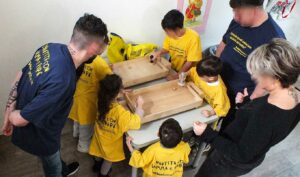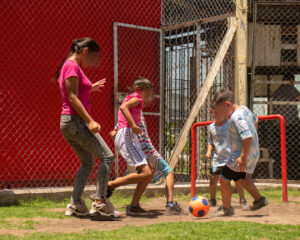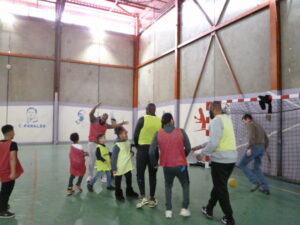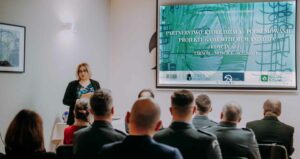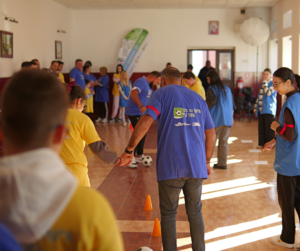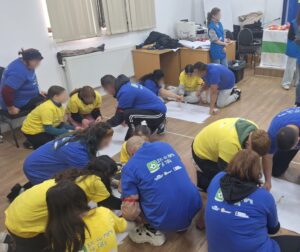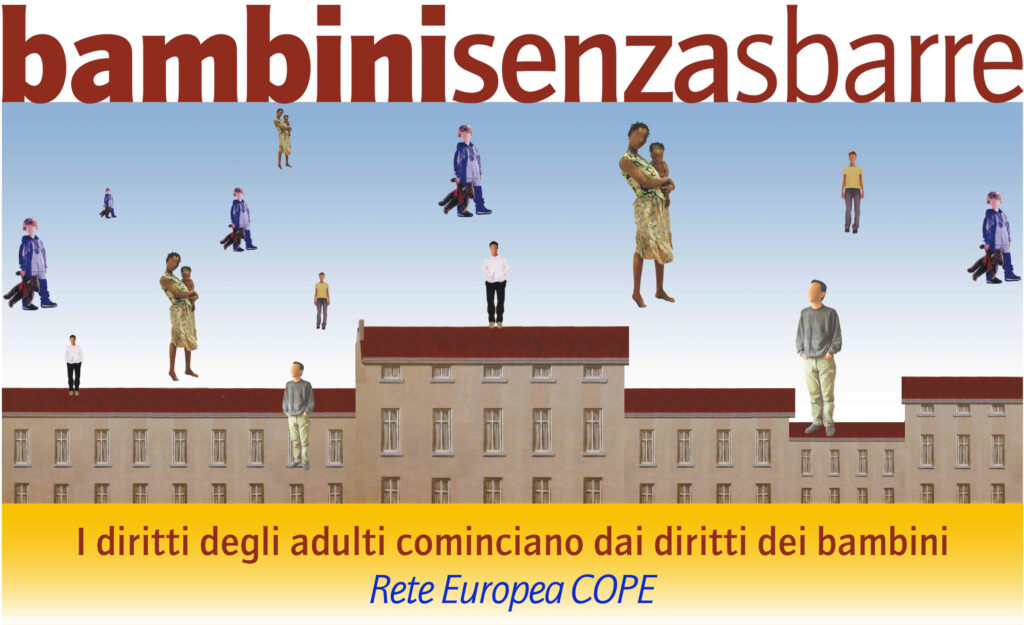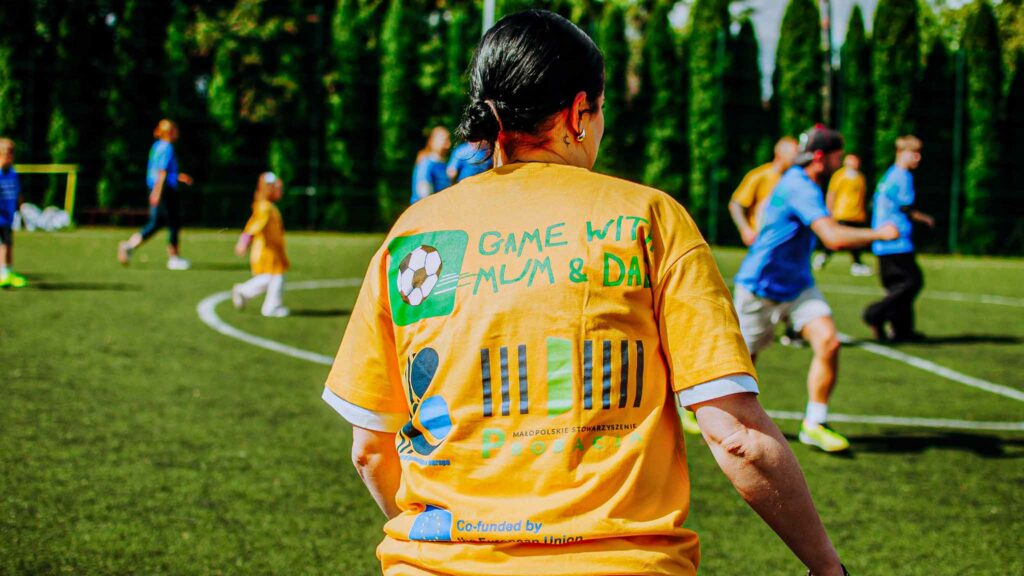
24 August 2025, Kraków’s Nowa Huta (Poland) — On Sunday, August 24, the “Game With Mum & Dad” match unfolded in Kraków’s Nowa Huta district. Not inside the External Ward of the Remand Prison but just beyond its fence, on the football pitch beside a neighborhood primary school. Twelve families — among them mothers and fathers currently serving sentences — took the field with their children under a clear, forgiving sky. “Every moment spent together is worth its weight in gold,” one parent said afterward, summing up the day’s stakes with an economy that no statistic could match.
The GWMD project has precisely this objective: to create unforgettable and precious moments that strengthen and maintain the bond between children and their imprisoned parents, events preceded by lengthy preparation work both inside and outside the prison.
This prison is the only site in the Polish edition of the program this year where women are serving time, which shaped the character of the gathering. The organisers already knew most of the families; in both the remand prison and its external ward they run regular parenting workshops in the spirit of nonviolent communication and host monthly family visits. That continuity showed. The pre-match greetings felt like a reunion, and the sidelines had the cadence of a family festival. As one mother put it, “We spend active time with family outside the walls of isolation. We play, talk, and enjoy being together.”
“Every moment spent together is worth its weight in gold”
— a father
The External Ward is a semi-open and open facility for first-time male offenders as well as first-time female offenders and female recidivists, and the program’s premise is simple: create normal, shared experiences that are scarce in detention. By late morning the grass was full of small dramas—parents pointing out passing options, children shouting for the ball, toddlers darting toward a parent’s arms. The youngest participant was just two months old; among the older children there were seven aged 1–4, four aged 5–10, and seven aged 11–17. For many fathers and mothers, it was a first chance in weeks to manage the ordinary chaos of family life. “Active time with the family after such a long separation, outside prison walls, helps build family bonds and allows us to once again feel free among our loved ones,” another participant reflected.
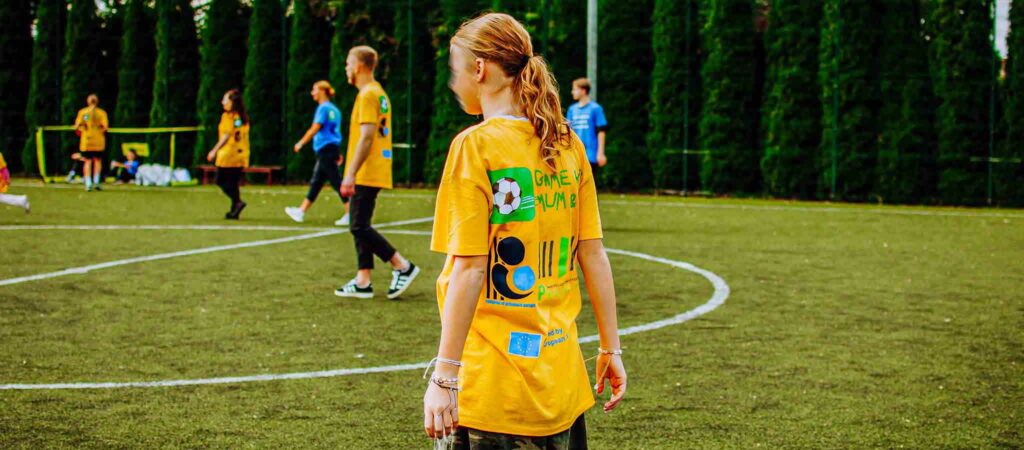
Representatives of the Małopolska Football Association attended, and after the final whistle the field gave way to a picnic of games and conversation. Local pizza arrived for lunch, and three volunteers shepherded impromptu relay races, face-painting, and ball skills around blankets and prams. Feedback from families was unambiguous. “Today’s events were 100% successful. Everything was beautifully organised,” said one parent, while another praised “plenty of attractions for both children and adults” and the “great commitment from the organisers.” A recurring request ran through the surveys: “We ask for more time so that we can enjoy each other’s company longer. Meetings like this are organized far too rarely,” wrote one participant; another added, “We ask for such meetings to be organised more often.”
Carrying out the GWMD project is certainly very challenging, and the NGO Probacja has been doing so admirably and very effectively for three years, increasing the number of prisons involved and the number of GWMDs every year since 2023.
“Active time with the family after such a long separation, outside prison walls, helps build family bonds and allows us to once again feel free among our loved ones”
— an officer
City and club figures helped set the tone. Marek Hohenauer, chairman of the Kraków City Council’s Sports Committee and a representative of the regional football association, joined a coach to hand out small surprises to the children. Hutnik Kraków Academy director and coach Dawid Będkowski kept the play anchored in fair-play and fun, easing moments of over-eager tackling and celebrating careful passes with the same gusto as goals. “Everything was perfectly organised,” a parent wrote later, “with plenty of attractions for both children and adults.”
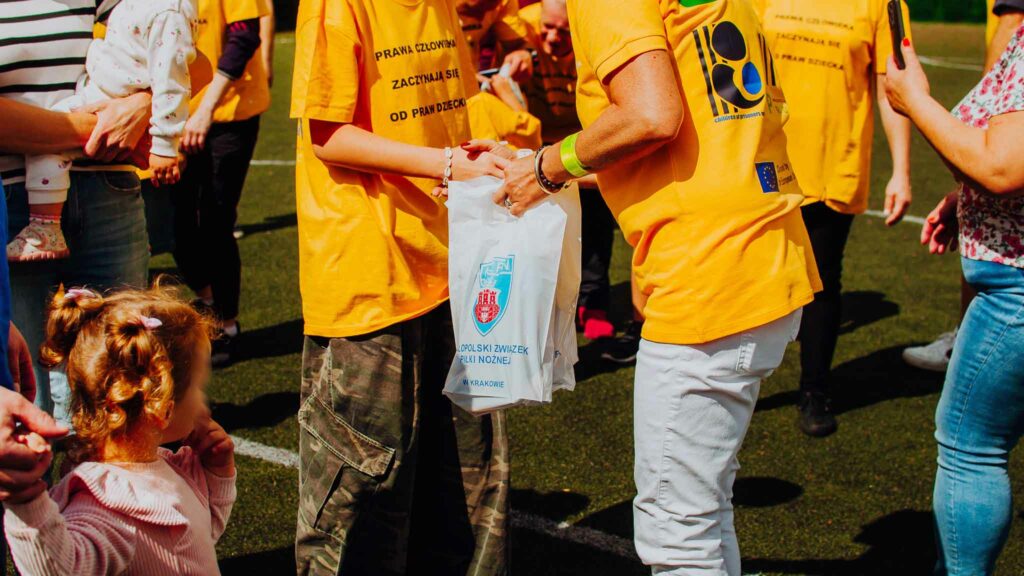
The day was possible because Primary School No. 78 once again opened its grounds. Headmaster Sławomir Nosek, who has long supported training for teachers on how to help children with an imprisoned parent, came in on a Sunday to unlock the gym — insurance against a sudden shower and a quiet room for naps, nursing, or a moment’s reprieve. That practical gesture underlined the project’s premise: when communities make space, families can rebuild rhythms that punishment interrupts but need not permanently erase.
Agnieszka Szeliga-Żywioł, Vice-President of the Probacja Foundation, the GWMD program’s head in Poland, left with a story that captured the event’s moral center. “One conversation stayed with me,” she said of a coach who lingered through the picnic. As he was leaving, he said: “I’m going home with gratitude that I can freely spend time with my children. Today I appreciate it even more, seeing those whose time with their families is limited. On a daily basis, we don’t think about it, we don’t value what we have. Today, I saw it very clearly.’”
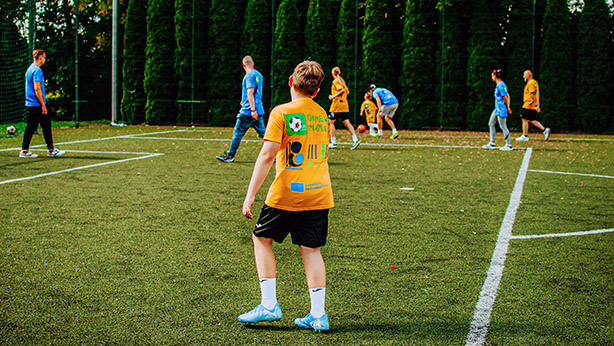
From 10 a.m. to 2 p.m., the match created a pocket of ordinary life: sun on grass, the squeak of boots, the sound of a child calling for a parent to watch. That ordinariness is precisely the point. It is why a parent could write, simply, “Every day spent together with family strengthens bonds,” and why the most persistent message in the surveys was not about the scoreline but about time—time to be present, to talk, to laugh and to carry a baby from shade to sun and back again. The families asked for more of it. The organisers say they intend to deliver.
“We ask for such meetings to be organized more often”
— a teenager
‘Game with Mum & Dad” is a project that takes the form of a simple but comprehensive tool, coordinated in Europe by Children of Prisoners Europe (COPE). It follows the model created by its Italian member Bambinisenzasbarre, which has been organising these events in Italian prisons since 2015.
This model is built around and focused on the right of the child to maintain regular and quality contact with both parents, including those in prison, as enshrined in the United Nations Convention on the Rights of the Child (20.11.1989).
The GWMD tool has proven to be a powerful means of maintaining and enhancing the relationship between imprisoned parents and their children, and is also capable of changing the culture of prison staff at all levels.
